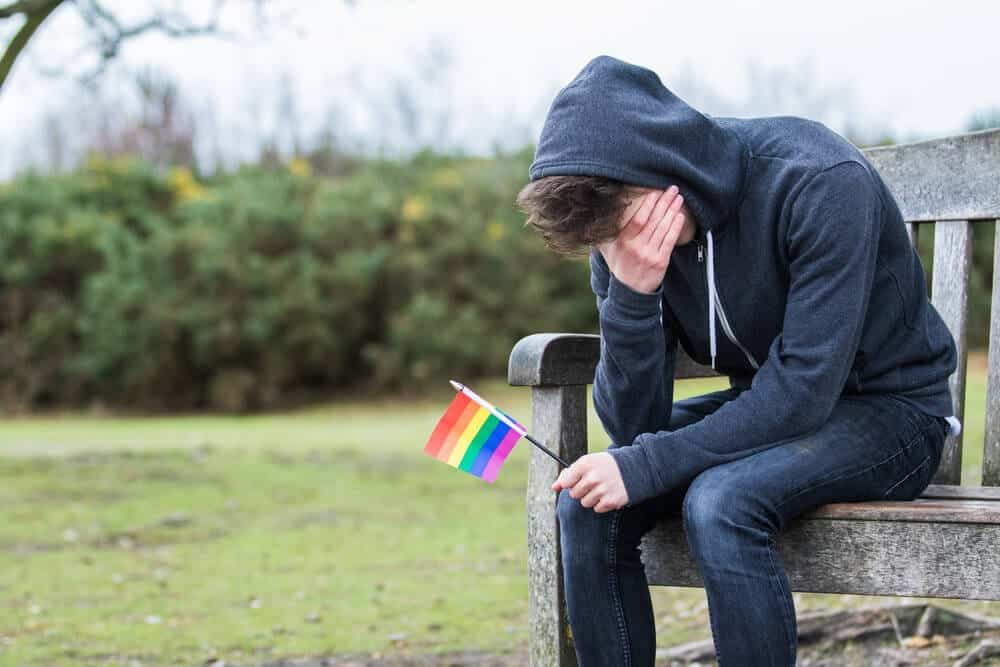It takes a lot of courage for a child to come to their parent and make a declaration about their sexuality. Whether you agree or disagree with their lifestyle choice is irrelevant. More importantly, how you react to their proclamation can affect your future relationship with your child. You must be very careful in how and what you say when they tell you they’re gay as you can cause irreparable damage to your relationship.
No one said raising a teenager is easy, but when they trust you with something so personal, you must at least keep an open mind and be there for them.
Don’t React In The Moment
Many parents already know when their child is gay long before they are told. For others, it comes as a complete shock. It’s important not to let your dreams and plans for your kid cloud your judgment. They cannot help the way they were born. You must validate their feelings and show them love and support above all else. Support doesn’t mean that you agree with the choice, it just means that you are there for them.
Most kids have an inner war within when they are strugglig with their sexuality, and an altercation with a parent will only make matters worse. It’s okay to tell them that it’s not what you wanted, but let them know that you are behind them all the way. Remember, shouting and saying things you can’t take back are not going to help the situation.
Don’t Single Them Out
One thing that you must realize is that children change. It’s very normal to explore sexuality when hormones are raging in the teen years. Some may experiment with being gay in high school, but they go on to live in heterosexual relationships when they are older. What your child is telling you is subject to change. So don’t be overly critical or think that it’s set in stone.
Advise your child that experimentation is entirely normal to be conflicted about their orientation. Don’t single them out and make them feel alone, which will only make the situation worse. Instead, encourage them that they are not the only one with these feelings. Being gay is completely accepted nowadays, and people are not required to live a lie as they did in previous decades.
Do Be Grateful They Came To You
So many children don’t have an open and honest relationship that allows them to talk openly with their parents. They feel that if they tell them how they truly feel that it may change their relationship or that they won’t be looked at the same.
Whatever you do, be grateful that they had the courage and trusted you enough to tell you what was going on inside. Do you know how many teenagers turn to drugs and alcohol over issues such as this? Rather than trying to self-medicate the pain away, they are turning to you for help. They are opening the lines of communication, and it’s the best thing for both of you.
Do Encourage Them To Seek Counseling
Anytime someone is different than others in their school or inner circle; it often causes bullying and poor self-esteem. Did you know that a survey done in 2012 showed that 44 percent of high school aged children know someone that sells drugs? Even if they tell you what is going on, that doesn’t mean that they won’t try to hide the pain through substance abuse.
The same study found that almost 50 percent of students have tried drugs between 9-12th grade. The pressure that these kids feel is unbearable. You may need to get them professional help. Counseling that is geared toward the LGBTQ community is helpful. However, you need to watch or signs of self-medicating too.
Do Watch For Signs of Mood Disturbances
Because of the isolation that comes along with being gay, you must watch for signs of mental health decline. Moods swings are commonplace among teens, but you keep an eye out for anything out of the ordinary. If they isolate in their bedroom, sleep or eat too much or too little, or start lying or stealing, it may be a sign that you need to get help from a residential treatment facility. Don’t think that it can’t happen to your child, because 2.5% of teens have a cocaine problem and 35% have a problem with alcohol.
Coming out to you was important to allow you inside their world, but you must make sure that their mental and physical health don’t take a toll from this lifestyle.
Dows your child need help with mental health issues or therapy in order to help them accept their sexuality? Call us for an appointment: 800-234-5599.

